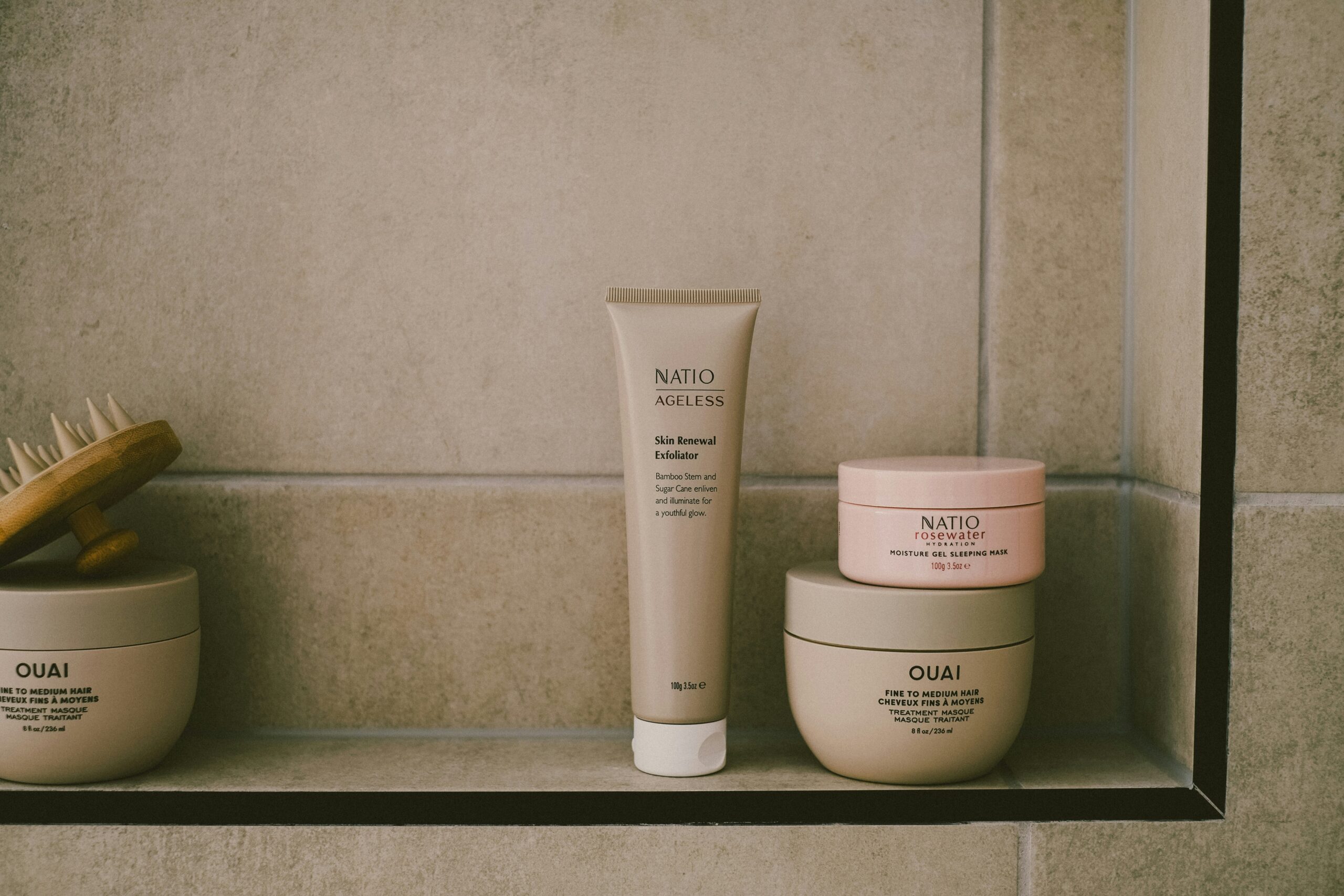Have you ever stood in the hair care aisle, staring at rows of products, wondering whether you should grab that expensive hair mask or stick with your trusty conditioner? You’re definitely not alone in this beauty dilemma!
The difference between hair mask and conditioner isn’t just about price or fancy packaging – it’s about understanding what your hair truly needs and when it needs it. Think of it like skincare: sometimes you need a light daily moisturizer, and other times your skin craves that intensive overnight treatment.
Understanding the Basics of Hair Conditioning
Before we dive into the nitty-gritty details, let’s get our hair facts straight. Both conditioners and hair masks serve the fundamental purpose of improving your hair’s condition, but they’re like distant cousins in the hair care family tree – related but distinctly different.
What Exactly is a Regular Conditioner?
Your everyday conditioner is basically your hair’s daily vitamin. It’s formulated to provide quick, surface-level benefits that make your hair more manageable after every wash. Regular conditioners work primarily on the hair cuticle (the outer layer) to smooth down those microscopic scales that can make your hair feel rough or tangled.
Most conditioners contain lighter molecular weights that allow for quick absorption and easy rinsing. They’re designed to be used frequently – typically after every shampoo – without weighing down your hair or causing buildup.
What Makes a Hair Mask Different?
A hair mask, on the other hand, is like that intensive spa treatment your hair gets once a week. Hair masks are formulated with higher concentrations of active ingredients and are designed to penetrate deeper into the hair shaft, reaching the cortex where the real structural damage often occurs.
The consistency alone tells a story – hair masks are usually thicker, richer, and more luxurious in texture. This isn’t just for show; that creamy, indulgent texture helps the product stay put longer, allowing those powerful ingredients to work their magic.
Key Differences Between Hair Masks and Conditioners
Let’s break down the core differences that actually matter for your hair routine:
1. Formulation and Ingredient Concentration
The most significant difference lies in concentration levels. Hair masks typically contain 2-3 times more active ingredients than regular conditioners. We’re talking about higher percentages of proteins, oils, vitamins, and moisture-binding agents.
For instance, while a regular conditioner might contain 1-2% keratin protein, a repair-focused hair mask could contain 5-8%. This concentrated approach means you need less frequent applications but with more dramatic results.
2. Application Time and Frequency
Here’s where the when to use hair mask instead of conditioner question becomes crystal clear:
- Regular Conditioner: 2-3 minutes, after every wash
- Hair Mask: 10-30 minutes, 1-2 times per week maximum
This timing difference isn’t arbitrary – it’s based on how long it takes for different molecular sizes to penetrate your hair structure. Quick conditioner molecules need just a few minutes, while the larger, more complex molecules in hair masks need extended contact time to do their job effectively.
3. Penetration Depth and Effectiveness
Regular conditioners work primarily on the surface and just beneath the cuticle layer. They’re excellent for immediate results like detangling, shine, and basic moisture. Hair masks, however, are formulated to penetrate multiple layers of the hair shaft, addressing structural damage and providing long-lasting benefits.
When to Use Conditioner vs Hair Mask
Timing is everything in hair care, and knowing when to use each product can transform your hair game completely.
1. Daily Conditioning Scenarios
Use your regular conditioner when:
- You wash your hair 2-3 times per week or more
- Your hair feels slightly dry or tangled after shampooing
- You need quick manageability and shine
- Your hair is relatively healthy with minimal damage
- You’re dealing with normal daily environmental stressors
2. Deep Treatment Situations
Reach for a hair mask when:
- Your hair feels brittle, straw-like, or severely damaged
- You’ve recently colored, permed, or chemically treated your hair
- You’re dealing with excessive breakage or split ends
- Your hair has lost its natural elasticity and bounce
- You want to prevent damage before a big event or photoshoot
Benefits of Regular Conditioners
Don’t underestimate the power of your everyday conditioner – it’s the unsung hero of healthy hair maintenance.
1. Surface-Level Protection
Regular conditioners create a protective film around each hair strand, shielding it from daily environmental damage like UV rays, pollution, and heat styling. This protective barrier also helps maintain your hair’s natural moisture balance throughout the day.
2. Detangling and Manageability
The immediate smoothing effect of conditioners makes wet hair easier to comb and style, significantly reducing breakage during the most vulnerable time – when your hair is wet and stretched.
Benefits of Hair Masks
Now, let’s talk about why hair masks have earned their reputation as the luxury treatment your hair deserves.
1. Deep Repair and Restoration
Hair masks excel at addressing structural damage that regular conditioners simply can’t reach. They can help rebuild broken protein bonds, fill in microscopic gaps in damaged cuticles, and restore the hair’s natural strength and elasticity.
You’ll appreciate that quality hair masks often contain the beneficial ingredients that can actually reverse some of the damage caused by harsh chemicals.
2. Intensive Moisture and Nourishment
For severely dry or chemically-treated hair, hair masks provide the intensive hydration that can transform brittle strands into silky, manageable locks. The extended application time allows for maximum moisture absorption.
How to Choose the Right Treatment for Your Hair Type
Your hair type should be the primary factor in deciding between conditioner and hair mask frequency.
1. Fine and Oily Hair Considerations
If you have fine or oily hair, you might think hair masks are off-limits, but that’s not necessarily true. Look for lightweight, protein-rich masks that won’t weigh down your strands. Use them sparingly – perhaps every 2-3 weeks – and focus application on mid-lengths and ends only.
2. Thick and Dry Hair Needs
Thick, coarse, or naturally dry hair types are the perfect candidates for regular hair mask treatments. Your hair can handle the rich formulations and will benefit significantly from the intensive moisture and protein infusion.
3. Damaged and Chemically-Treated Hair
If your hair has been colored, bleached, or chemically processed, incorporating both products strategically is crucial. Use a gentle, daily conditioner for maintenance and a deep conditioning treatment mask once or twice weekly for repair and protection.
Application Techniques for Maximum Results
Proper application can make or break your results, regardless of which product you’re using.
Proper Conditioner Application
- Apply to damp (not soaking) hair from mid-length to ends
- Use a wide-tooth comb to distribute evenly
- Leave for 2-3 minutes maximum
- Rinse thoroughly with cool water
Hair Mask Application Best Practices
- Start with freshly washed, towel-dried hair
- Apply generously from mid-length to ends (avoid the scalp unless specified)
- Use a wide-tooth comb or fingers to ensure even distribution
- Cover with a shower cap or warm towel for enhanced penetration
- Leave for the recommended time (usually 10-20 minutes)
- Rinse thoroughly – inadequate rinsing can cause buildup
Common Mistakes to Avoid
Even the best products won’t work if you’re making these common errors:
- Over-masking: Using hair masks too frequently can cause protein overload or excessive moisture, making hair limp or brittle
- Scalp application: Most hair masks aren’t meant for the scalp and can cause buildup or irritation
- Inadequate rinsing: Leaving residue can weigh hair down and attract dirt
- Wrong timing: Using intensive treatments when your hair needs gentle daily care, or vice versa
Cost-Effectiveness and Value Comparison
While hair masks typically cost more per ounce than regular conditioners, their concentrated formulations and less frequent usage often make them more economical in the long run. A quality hair mask used once weekly can last 2-3 months, potentially offering better value than daily conditioner use.
Professional vs At-Home Treatments
Home hair masks have come incredibly far in recent years, with many containing salon-quality ingredients. However, professional treatments still offer advantages like customization, higher-grade ingredients, and expert application techniques.
For maintaining results between salon visits, a good at-home routine combining quality conditioner and weekly hair masks is often the most practical and effective approach.
Conclusion
The hair mask vs conditioner debate isn’t about choosing one over the other – it’s about understanding when and how to use each product for optimal hair health. Regular conditioners are your daily maintenance heroes, providing consistent protection and manageability. Hair masks are your intensive repair specialists, delivering transformative results when your hair needs extra TLC.
The key to beautiful, healthy hair lies in creating a balanced routine that incorporates both products strategically. Listen to your hair’s needs, adjust your routine seasonally, and remember that consistency trumps perfection every time.
Whether you’re dealing with damage from harsh ingredients (which you can learn more about in our guide to avoiding harmful hair components) or simply wanting to maintain your hair’s natural beauty, the right combination of conditioning treatments will help you achieve your hair goals.
Remember, great hair isn’t built in a day – it’s the result of consistent, thoughtful care that addresses your hair’s unique needs. So go ahead, treat your hair to both the daily love of a good conditioner and the weekly luxury of a nourishing hair mask. Your strands will thank you for it!
Frequently Asked Questions
1. Can I use a hair mask instead of regular conditioner every day?
No, daily hair mask use can lead to product buildup and over-conditioning, making your hair limp or greasy. Hair masks are designed for intensive weekly treatments, while conditioners are formulated for daily use. Stick to using hair masks 1-2 times per week maximum.
2. How do I know if my hair needs a conditioner or a hair mask?
If your hair feels slightly dry or tangled after washing but is generally healthy, use a regular conditioner. If your hair feels brittle, has visible damage, lacks shine, or breaks easily, it’s time for a hair mask treatment. Assess your hair’s condition honestly – damaged hair needs intensive care.
3. Can I mix conditioner and hair mask together?
While not harmful, mixing these products dilutes the hair mask’s concentrated benefits and isn’t recommended. Use them separately – conditioner for daily maintenance and hair masks for weekly intensive treatments. This approach maximizes the unique benefits of each product.
4. Should I use conditioner after applying a hair mask?
Generally, no. Hair masks are designed to be complete treatments that provide conditioning benefits. Using conditioner afterward can cause buildup and weigh down your hair. However, if you have very fine hair, you might use a light conditioner on ends only after rinsing the mask.
5. How long should I wait between hair mask treatments?
For most hair types, wait 3-7 days between hair mask applications. Damaged or very dry hair can handle twice-weekly treatments, while fine or oily hair should stick to once-weekly or even bi-weekly applications. Pay attention to how your hair responds and adjust accordingly.

Hi! I’m Katia Luján, an SEO and Content Marketing expert with over 10 years of experience helping websites grow organically and get approved by Google AdSense.
I’ve worked in Google’s Trust & Safety team for AdSense and have helped more than 100 websites comply with monetization policies. Currently, I’m the strategist behind Buzzlix—creating SEO-optimized, high-quality content on beauty, skincare, and self-care.
I’m passionate about empowering others with actionable, sustainable, and accessible beauty content.


Leave a Reply